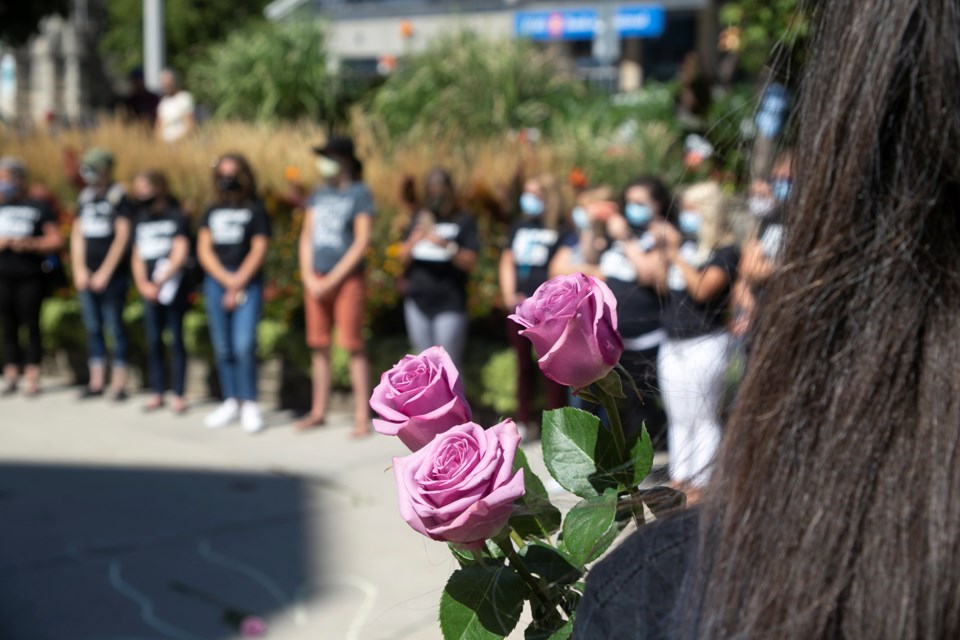Overdose deaths are not an opioid crisis, it's not even an overdose crisis, according to the director of the Ontario Harm Reduction Network, Nick Boyce.
“It truly is a failure of drug policy,” he said on Wednesday’s Support Not Stigma: Decriminalizing the Possession of Substances for Personal Use panel hosted by the Wellington Guelph Drug Strategy and the Human Services and Justice Coordinating Committee.
Over 14,000 people in Ontario died from fatal drug poisoning since 2016 and local leaders in drug strategy believe it's time for a policy change.
The current federal and provincial drug policies criminalize substance use and addiction and limit safe consumption sites. Advocates for drug decriminalization say this prohibits users to access certain drugs, leading them to the unregulated market and the pandemic has only made it worse.
Boyce pointed out that opioid overdose deaths have been going up every single year for over 20 years.
In 2019, the number of opioid deaths in Ontario was 1,516. In 2020, it was 2,422 and the projected number for 2021 based on the year's first seven months is 2,868.
He said the criminalization of drugs was never based on science but rather on "racist colonial classist social ideas."
“This level of death and hospitalization has become normalized. And I think it is because people who use drugs are seen as disposable, less than human and not worthy,” said Boyce.
He said when people question why money should be spent on safe injection and harm reduction, they don’t appreciate how much tax money they are already spending on failed drug policy, making everything worse.
“The amount of money we spend on border security, drug interdiction, policing courts, lawyers and prisons,” said Boyce adding that it's important to recognize that not all drug use is addiction.
“We have a serious housing crisis. People need trauma counselling, and these are our resources and just being put in the wrong places.”
Ashley Smoke from the Ontario Network of People Who Use Drugs said when developing any protocols, policies or laws related to drug use, experts in the field need to be consulted.
Smoke said fatal overdoses went up 80 per cent during the first year of COVID compared to the year before.
“So those numbers were already too high and they're just going up and up and up, and it's not slowing down,” they said, adding that it is not possible to arrest drug users out of this problem.
They said social services like harm reduction, safe consumption sites and mental health services are where clients seem to get the most benefit.
“But they're understaffed, underfunded, and we spend ridiculous amounts of money doing research and studying drug use, while all the findings say the same things. And oftentimes, all you have to do is consult people who use drugs and we can tell you what you guys will already find out after spending millions of dollars. Those funds could be diverted to help people instead of studying them,” said Smoke.”
“But to do that, we actually have to be trusted as citizens and not just criminals, right? We're not trusted and that's because of the stigma related to the discriminatory policies and laws which is why we need to decriminalize drug use.”
Bryan Larkin, chief of police of the Waterloo Regional Police Service, said one cannot have a discussion about modernized drug policy by simply talking about decriminalization and not having the conversation around consumption, treatment, rehabilitation and access to safe supply.
“They all have to be integrated. We all have to actually work aligned,” said Larkin.
“The amount of Canadians, the amount of loved ones, the amount of citizens of our country that have died as a result of an overdose should be unacceptable. It should be unacceptable, that a nation of our size that has never been so wealthy that has never been so organized cannot actually work towards a greater process, a greater health outcome.”
He said the judicial system and correctional system was never set up to deal with the complexities of addiction, disorders and various challenges,
He said for the individuals that have a concurrent disorder and have contact with the police, the pathway for them ought to be rehabilitation and support and not the judicial system.
“I want to be very clear that the Canadian chiefs do support decriminalization. We do support pathways to care. We do support that version. We do support a different approach. We support consumption treatment sites, we also support safe supply and we're urging our decision-makers to actually have those discussions collaboratively,” said Larkin adding that we all saw how policy can be moved with the legalization of cannabis.
